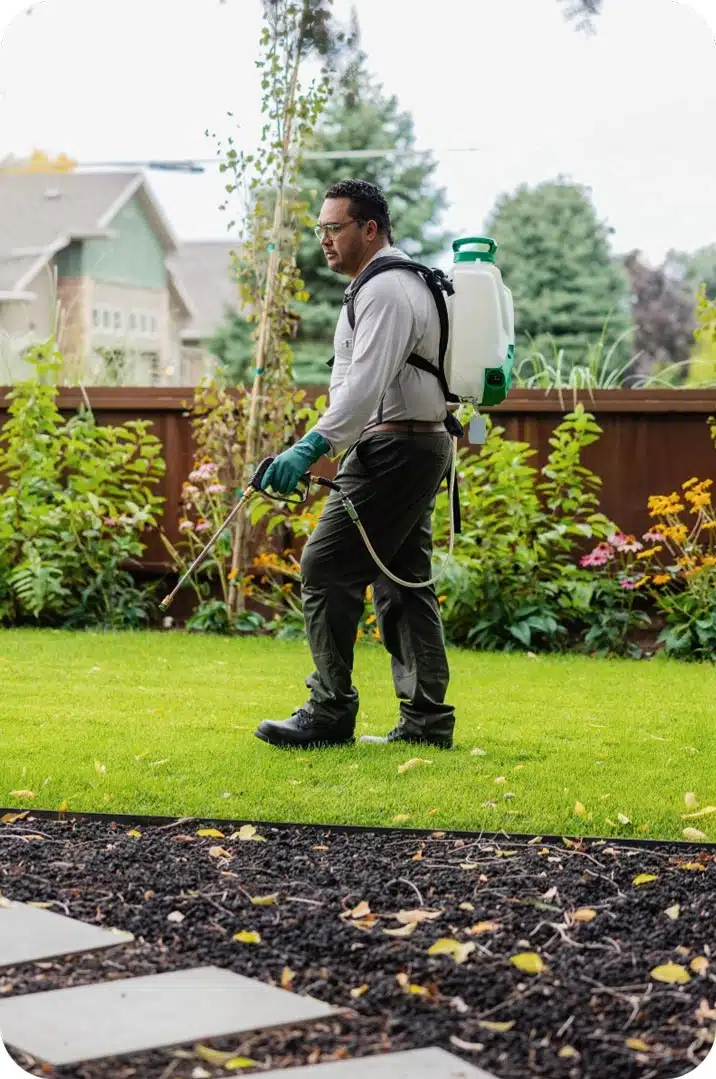Efficient Insect Control Solutions: An Extensive Consider Extermination Techniques and Avoidance Measures
In the world of parasite control solutions, the effective monitoring of infestations calls for a thorough technique that integrates various strategies and steps for both elimination and prevention. From Integrated Bug Administration (IPM) methods that prioritize lasting services to chemical extermination methods created for targeted elimination, the collection versus parasites is substantial and complex. Organic control methods and physical prevention actions use alternate paths to efficiently combating unwanted burglars. However, the key to a detailed insect control plan lies not just in the techniques themselves, yet also in the meticulous specialist assessment procedures that come before and notify them. By recognizing the details of each technique and exactly how they interaction, one can genuinely understand the intricacy and performance of contemporary parasite control solutions.

Integrated Insect Management (IPM) Techniques
Integrated Pest Monitoring (IPM) Techniques encompass a detailed approach to pest control that concentrates on monitoring, control, and prevention techniques to properly manage insect populations. By incorporating numerous methods, IPM aims to reduce the influence of parasites while also lowering the reliance on chemical pesticides. Prevention lies at the core of IPM, stressing methods like correct hygiene, upkeep of health, and securing entrance factors to hinder pests from infesting buildings. Surveillance plays a crucial role in IPM by consistently examining and identifying parasite levels to identify the ideal intervention limits. Control techniques in IPM prioritize making use of physical, biological, and social techniques prior to transforming to chemical treatments as a last resort. These methods consist of presenting all-natural killers, environment adjustment, and employing trapping devices to keep insect populaces in check. Overall, IPM cultivates a sustainable and eco mindful method to pest administration, advertising long-lasting solutions that protect both human wellness and the community.
Chemical Elimination Strategies
Chemical elimination methods are typically used in parasite control services to efficiently eliminate insect populations that posture a threat to human health and wellness and building. These strategies include making use of various chemical substances specifically developed to target and get rid of parasites such as bugs, rodents, and various other undesirable creatures. The application of chemicals, insecticides, rodenticides, and various other chemical agents is carefully managed to ensure optimum performance while decreasing risks to humans, animals, and the environment.
One of the crucial advantages of chemical extermination techniques is their ability to provide fast and targeted results, making them particularly helpful in cases of serious invasions or urgent pest control requirements - a1 residential pest control portland or bed bugs. However, it is vital to emphasize the value of correct handling, application, and disposal of these chemical items to protect against unplanned harm
Moreover, integrated bug management (IPM) approaches frequently incorporate chemical extermination strategies with various other methods such as cleanliness, environment adjustment, and biological controls to develop a sustainable and comprehensive bug control approach. By including chemical elimination strategies deliberately within an IPM structure, insect control services can successfully handle parasite populaces while decreasing possible threats to human health and the environment.
Biological Bug Control Methods
Utilizing natural predators and bloodsuckers to handle insect populations is a sustainable method called organic pest mosquito control control. This method harnesses the natural systems of the community to manage pest populations without counting on synthetic chemicals. One typical biological control technique includes introducing all-natural opponents of the target pest species, such as ladybugs for aphid control or nematodes for termite problems. These all-natural killers prey on the parasites, helping to maintain their populations in check.
One more effective organic control approach is using microbial pesticides. These are normally happening microbes, such as viruses, microorganisms, and fungis, that especially target and infect specific bug types. By using these microbial agents, insect populaces can be successfully reduced without damaging helpful organisms or triggering injury to the environment.
Physical Bug Prevention Steps
Implementing physical pest avoidance steps includes using obstacles and structural adjustments to discourage parasites from entering or infesting a residential or commercial property. Setting up door moves, screens on windows, and securing cracks in the foundation can assist protect against pests like insects and rats from acquiring accessibility indoors.
Another physical prevention measure is the usage of barriers like fencing to keep larger insects such as raccoons or deer away from the residential or commercial property. By carrying out these physical bug avoidance actions, property owners can substantially minimize the threat of parasite problems and the damages they can create.
Specialist Parasite Inspection Treatments
Carrying out organized and complete insect evaluations is an essential facet of expert parasite monitoring professional bug exterminator procedures. Expert pest assessors are trained to carefully take a look at homes for signs of problems, determining pest species, access points, and favorable problems.

Verdict
In final thought, effective bug control solutions utilize a selection of techniques, consisting of Integrated Insect Management strategies, chemical elimination techniques, organic controls, and physical avoidance actions. Specialist insect inspection treatments play a critical role in recognizing and attending to pest problems in a timely fashion. By implementing a combination of these strategies, building owners can efficiently take care of and protect against bug infestations.
From Integrated Parasite Monitoring (IPM) strategies that focus on lasting options to chemical elimination techniques made for targeted elimination, the collection versus pests is huge and complex.Integrated Pest Monitoring (IPM) Methods incorporate a comprehensive technique to pest control that concentrates on control, tracking, and prevention approaches to effectively manage pest populaces.Chemical elimination methods are frequently utilized in pest control solutions to properly remove insect populaces that present a danger to human health and residential property.Utilizing natural killers and parasites to manage bug populations is a sustainable approach recognized as organic insect control.In final thought, efficient insect control services utilize a selection of techniques, including Integrated Insect Monitoring approaches, chemical elimination techniques, organic controls, and physical avoidance procedures.